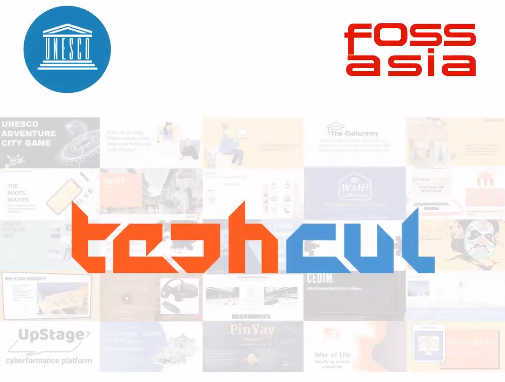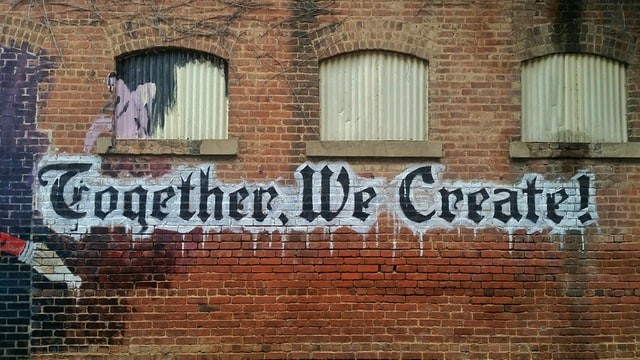Teams from around the Asia-Pacific region were recognised by UNESCO during its first TechCul Ideathon for proposing cutting-edge digital solutions to overcome challenges in the culture and creative sector.
A total of 443 participants from 34 countries signed up for the Ideathon Online Event on 6 December 2020 organised by UNESCO Bangkok and FOSSASIA, a non-profit focused on open source software and open hardware.
Twenty-five finalists presented their ideas to the jury members at the pitch event on 9 January 2021. Diverse teams spanning from Afghanistan to Mongolia to New Zealand came up with a range of solutions to tackle problems raised by COVID-19 and other deeper-rooted issues. These included social e-commerce platforms allowing crafts producers to interact with buyers and AR/VR apps providing access to heritage on the verge of dying out. Other teams worked on virtual stage platforms, applications to map local culture, and culture appreciation and education apps, among others.
“With the new challenges the creative sector across the world has faced in 2020, TechCul is a great way to foster innovative ideas and digital solutions from the grassroots,” said jury member Roxana Apostol, Programme Manager at the British Council.
The Roots Routes team from Thailand was the crowd favourite, garnering prizes from the British Council, International Information and Networking Centre for Intangible Cultural Heritage in the Asia-Pacific Region (ICHCAP) and Tencent, as well as startup support from Thailand’s Digital Economy Promotion Agency and the National Innovation Agency. The team proposed a travel platform that connects people to indigenous culture and local communities in a sensitive and sustainable manner.
Another popular winner was the WaH! Collective team from Hong Kong SAR, China, which pitched an online platform to connect culture enthusiasts with rural villagers through interactive workshops about local knowhow. The project won prizes from Huawei and ICHCAP, as well as mentoring support from the University of Hong Kong.
“There is no better way to bridge the past and the future than through the application of technology to preserve and encourage cultural enrichment. Through UNESCO’s TechCul initiative, we create opportunities for traditional arts to embrace digital concepts to increase cultural reach,” commented Jury member Michael MacDonald, Chief Digital Officer at Huawei Technologies.
The winning teams will receive a range of prizes, including cash, tech gadgets, cloud storage, mentoring and incubation support by UNESCO and prestigious partners. The support will help them further develop their ideas into prototypes.
All 25 finalists will get cloud credits from Amazon Web Services. Regional prizes were offered by leading technology companies such as Huawei, along with cultural institutions like the British Council, ICHCAP and the University of Hong Kong’s Centre for Civil Society and Governance. Thailand-based sponsors included the Digital Economy Promotion Agency, the National Innovation Agency and Tencent (Thailand).

Techcul
Background info
UNESCO launched the TechCul Initiative to bring together a new generation of new technology and culture innovators, such as artists, photographers and museum curators. Both seasoned professionals and students took part. The youngest team was a sister duo from Singapore, ages 11 and 13.
To sustain the future impact from the first TechCul event, Gi Hyung Keum, Director-General of ICHCAP sounded a positive note: “Digital technologies have made it possible for us to enjoy cultural heritage with a simple click of the mouse. Further efforts can foster convergence between the two sectors. TechCul can bridge the gap between the two, and we expect more to follow in the days to come.”
The jury screened the finalists for their relevance, business potential, solution design, technical implementation, scalability, collaboration, and inclusiveness.
The jury included technology experts Mario Behling (Co-founder of FOSSASIA), Urban Kaiser (Head of Innovation Acceptance Unit at Fraunhofer IMW), Michael MacDonald, Piti Patcharavalai (Senior Product Experience Expert at Tencent), Phantika Trakunsathitmand (Senior Team Leader at DEPA) and Pariwat Wongsamran (Director of Startup Thailand at NIA).
Culture specialists on the jury included:
- Roxana Apostol (Programme Manager at British Council),
- Jervais Choo (Deputy Director at the Singapore National Heritage Board), Min Yung Jung (Programme Specialist at ICHCAP),
- Montira Unakul (Programme Officer at UNESCO Bangkok)
- Anna Yau (Project Manager at the Centre for Civil Society and Governance, University of Hong Kong).
